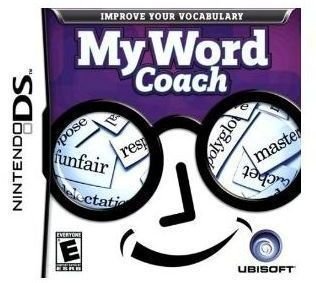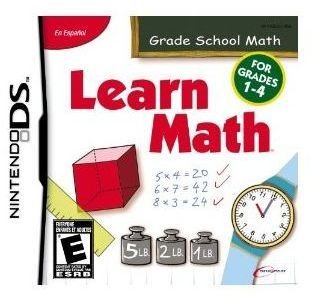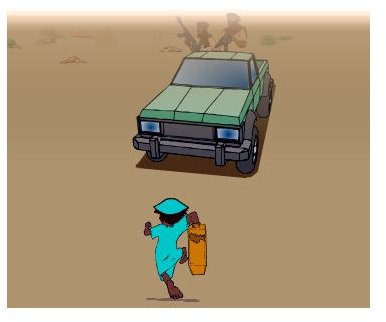Effects of Playing Video Games on Children With Regard to Educational Benefits

Video Games as an Educational Resource
Video games have had quite a bit of negative publicity over the years. Fortunately parents and teachers have learned not to listen to all the doom-mongering and are now catching on the fact that the effects of playing video games on children can be very beneficial with regard to their educational development. In fact, video games have earned a place as a trusted resource in many learning environments.
These educational benefits can be experienced both when integrated into formal teaching situations and also an informal by-product of playing video games during leisure time. Even if a game is not marketed as being educational it can still have some real learning value for children. We’ll look at both types of games in this article.
Why Video Games Can Help Children to Learn
A video game is not a passive medium like television. While it’s true that some games don’t appear to place any intellectual demands on kids a video game with educational value will involve the child in some way.
Many games will prompt children to make decisions based on reasoning. Memory and reading comprehension skills may be called upon for this. Video games, even those intended for leisure rather than education, frequently involve the accumulation of points or an in-game currency that can be exchanged for objects or perks, developing numeracy skills. Interaction with game characters can even reinforce basic social skills.
Many video games take these skills to another level by having a specific educational focus. Some examples would be:
-
Language learning games e.g. JumpStart Languages for the PC or the Nintendo My Language Coach series
-
Games that develop vocabulary e.g. Wordmaster for Nintendo DS or My Word Coach for DS or Wii
-
Spelling games e.g. Spelling Challenges for Sony PSP and Nintendo DS
-
Numeracy games e.g. Learn Math and Personal Trainer: Math (both for Nintendo DS) or for younger children Sesame Street: Cookie’s Counting Carnival for the Nintendo Wii
-
Cross-curricular quiz and puzzle games e.g. Brain Quest: Grades 5 and 6 for Nintendo DS
Educational Effects of Playing Video Games on Children and Teens

The advantage of a good educational game is that by giving children an active role and presenting them with fun challenges they are motivated to learn. Effort is rewarded with points, badges or positive feedback, prompting the child to persevere.
The motivating effects of playing video games on children can be so strong that they will willingly put in more practice to increase their score. In these circumstances learning occurs as a natural result of playing. In their focus on the game children forget that learning is supposed to be ‘boring’ and discover that knowledge can be fun!
Video Game Education Can Be Informal

A video game doesn’t have to be marketed as educational or for classroom use in order to be beneficial for children’s educational development. Even those games that you let the kids play ‘just for fun’ in small doses can promote more informal learning.
Academic researcher James Paul Gee has studied the educational possibilities offered by video game play, looking at the types of games kids and teens play at home for enjoyment. He described 36 learning principles that can be present in a video game, creating an environment that encourages learning.
For example, he describes how in a video game such as Tomb Raider the player is encouraged to explore and make progress through experimentation rather than wait to be given instructions. Another of his principles is the ‘psychosocial moratorium’ in which, in this and many others video games, failure at any stage is only a temporary setback. This encourages risk taking that would not be possible in a real-world environment. Some would say that lead character Lara Croft is also a great role model for girls!
Another example of learning through video game play can be seen in the Nintendo game Animal Crossing. Here the player must learn to use in-world resources to thrive in a small town. At the beginning of the game the player is saddled with a mortgage on his or her character’s home and must raise the funds to pay this off in order to upgrade the character’s living environment. Although the game activities are fun, the message is that nothing comes for free and persistent effort is rewarded.

Gee’s ‘identity principle’ can also lead to powerful learning opportunities. In playing video games, children adopt another identity, giving them a chance to experience another viewpoint in a way that engages their own real-world beliefs and knowledge (Gee calls the merging of these identities the ‘projective identity’).
A great example of this is in the online game Darfur is Dying in which the player takes on the identity of a child in a Darfur refugee camp fighting for survival. This kind of video game education is a powerful way to learn about how others live and to develop a social conscience through genuine empathy.
Conclusion
Although it is easy to underestimate the benefits of video game education, games offer a motivating environment in which children can learn a whole range of skills. Those that form part of a formal teaching program can focus on developing key skills such as literacy, numeracy and second language acquisition. However, even video games without obvious educational aims can promote the development of an enquiring mind, resourcefulness, the ability to see the world from another viewpoint, and a willingness to practice in order to master skills.
References
Gee, J.P. (2003). What Video Games Have to Teach Us about Learning and Literacy (New York, Palgrave Macmillan).
